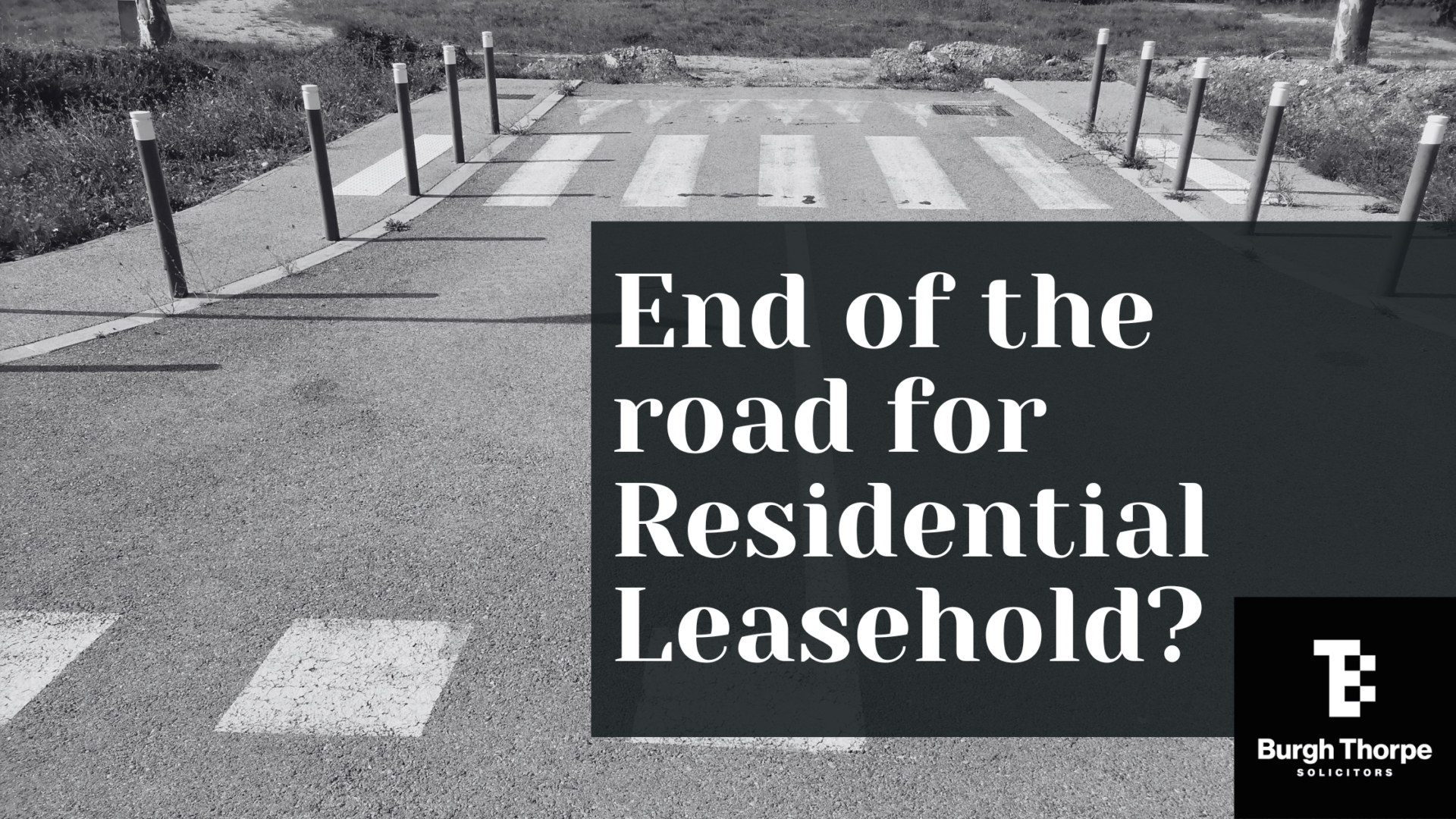End of the road for Residential Leasehold?
Conveyancing Posted 20 June 2023Michael Gove, the Secretary of State for Levelling Up, Housing and Communities (LUHC), has recently been quoted as stating that the leasehold system of home ownership is “an outdated feudal system” and should be scrapped by the end of this Parliament.
If the writing is on the wall for leasehold in residential property then we need to consider what will replace it. The Commonhold and Leasehold Reform Act 2002 was given Royal Assent on 1 May 2002 so will soon be celebrating its 21st birthday. It introduced the tenure of commonhold which was launched as an alternative home ownership tenure to leasehold in England and Wales.
Commonhold allows the residents of a building to own the freehold of their individual flat (called a “unit”) and to manage (or appoint someone to manage) the shared areas through a company known as the commonhold association. Since its introduction however it has not been widely adopted and it is reported that fewer than 20 commonholds have been established.
It was, unfortunately, realised quite quickly that commonhold as originally introduced was flawed in that it was “one-size-fits-all” and did not cater for the complexities of modern mixed-use developments. Indeed, it did not cater for shared ownership tenures which were increasingly common in housing developments.
There was, accordingly, a reluctance to adopt commonhold in new residential developments and the process of converting existing residential developments to commonhold faced the almost insurmountable challenge of requiring the unanimous consent of all long leaseholders and their mortgagees.
Making Commonhold Fit for Purpose: The Law Commission’s Report
The Law Commission was tasked by the present Government with considering how to “reinvigorate commonhold to provide greater choice for the consumer.” It published “Reinvigorating commonhold: the alternative to leasehold ownership in July 2020 and an open letter to lenders on taking commonhold as security. Its report made 121 recommendations, which were designed to make commonhold the preferred alternative to leasehold home ownership. These recommendations were intended to:
- remove the requirement that conversion to commonhold needs the unanimous agreement of leaseholders and others
- provide a simpler, more cost-effective procedure for converting to commonhold
- provide developers with the flexibility they need to build new commonhold developments so that it is no longer “one-size-fits-all” and will enable commonholds to be tailored, by using “sections” (along with other tools) to suit their individual needs
- enable developers to build new commonholds in phases, so that they can respond to the changing needs of their site as building progresses
- accommodate shared ownership leases and home purchase plans in commonhold
- improve the day-to-day operation of commonholds, by ensuring that commonholds are kept in good repair and are properly insured
- provide that every commonhold must maintain a fund towards future repairs, which will allow the cost of major works to be budgeted for over the years and will reduce the risk of large and unexpected bills
- improve the content and layout of the commonhold’s rulebook (the commonhold community statement) so that it will make it easier for owners to understand their rights and obligations within the building
- provide greater certainty to lenders that their interests will be protected, including in the unlikely event of a commonhold association’s insolvency
Will the Government implement the report’s recommendations?
In January 2022 the Government launched a further consultation entitled “Reforming the leasehold and commonhold systems in England and Wales”. It only picked up on two of the recommendations made by the Law Commission, namely, that, first, shared ownership leases be allowed to be part of commonhold developments and, secondly, that certain improvements be made to the requirements for the provision of certain information (contained in a Commonhold Unit Information Certificate) to unit holders and their buyers when a commonhold unit is bought and sold. The consultation stated that the other recommendations were being considered but the outcome of these deliberations has yet to be announced.
There have been various references in the House of Commons to further leasehold and commonhold reform to build on the changes made by The Leasehold Reform (Ground Rent) Act 2022. (This Act came into force on 30 June 2022 and had the effect of abolishing ground rents on new leases created on or after 30 June 2022.)
In a House of Commons research briefing published in December 2022 it was stated that: “Additional legislation is required to implement those aspects of the Law Commission’s recommendations the Government intends to take forward. This legislation is expected in the 2023-24 parliamentary session.”
It remains to be seen whether the Government does decide to embrace and support commonhold as a system to replace residential leasehold in this Parliament.
